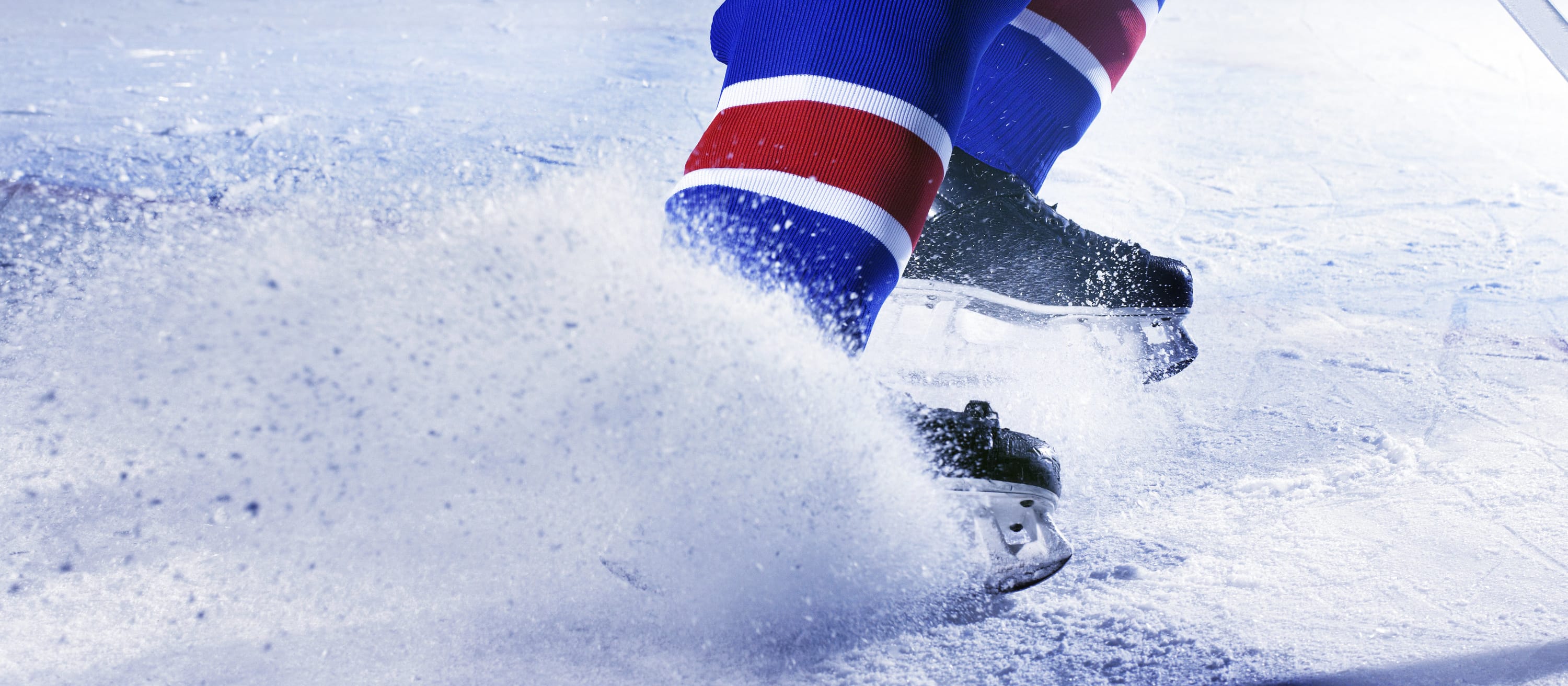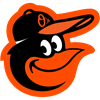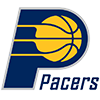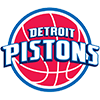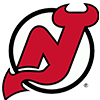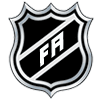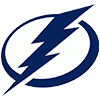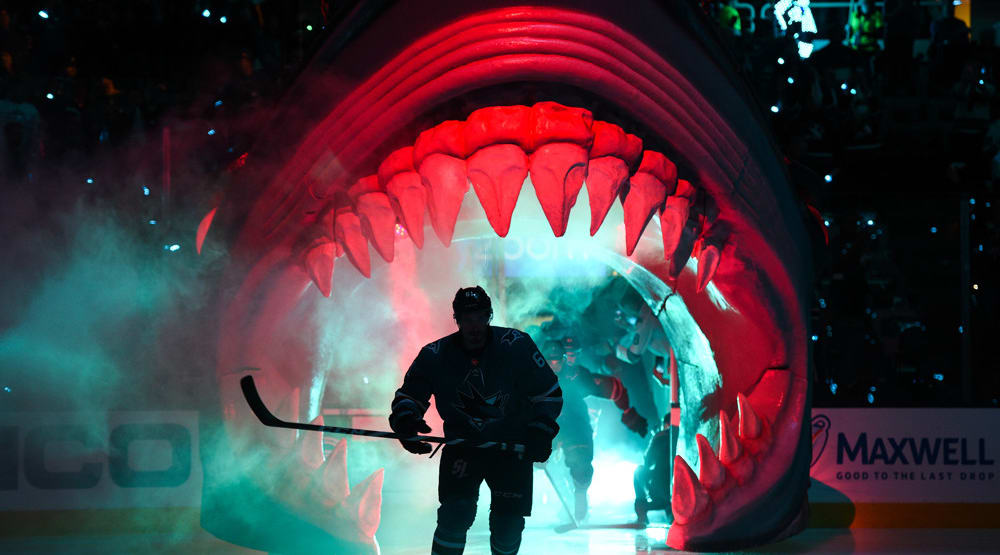The 2013 NHL Entry Draft takes place on June 30th in Newark, New Jersey. The Colorado Avalanche hold the first overall pick in a draft that is considered to be remarkably deep, but lacking in true top-flight franchise players. Our annual top 30 ranked players are listed below.
1) Seth Jones (D, Portland-WHL): Jones remains the favorite to be the first overall pick, but the gap may be a bit smaller than it was when the season began. Jones did his part by having a fantastic season. He was impressive in helping leading Team USA to a gold medal at the World Juniors and he had 56 points in 61 games in his first junior season in Portland. His game has no glaring weaknesses. He can really skate, has great size at 6'4 and 210 pounds and has an absolute rocket from the point. He doesn't project as a true power play quarterback, but his shot is so hard that he has the ability to make a major impact with the man advantage. The player you hear Jones compared to most is Shea Weber. The main difference being that Weber was a late second round pick when he was drafted by Nashville in 2003. Barring a last minute trade or sudden change, Jones is likely ticketed to play in the city where he learned the game while his dad Popeye was playing for the NBA's Denver Nuggets.
2) Nathan MacKinnon (C-Halifax-QMJHL): Before the Memorial Cup tournament in late
The 2013 NHL Entry Draft takes place on June 30th in Newark, New Jersey. The Colorado Avalanche hold the first overall pick in a draft that is considered to be remarkably deep, but lacking in true top-flight franchise players. Our annual top 30 ranked players are listed below.
1) Seth Jones (D, Portland-WHL): Jones remains the favorite to be the first overall pick, but the gap may be a bit smaller than it was when the season began. Jones did his part by having a fantastic season. He was impressive in helping leading Team USA to a gold medal at the World Juniors and he had 56 points in 61 games in his first junior season in Portland. His game has no glaring weaknesses. He can really skate, has great size at 6'4 and 210 pounds and has an absolute rocket from the point. He doesn't project as a true power play quarterback, but his shot is so hard that he has the ability to make a major impact with the man advantage. The player you hear Jones compared to most is Shea Weber. The main difference being that Weber was a late second round pick when he was drafted by Nashville in 2003. Barring a last minute trade or sudden change, Jones is likely ticketed to play in the city where he learned the game while his dad Popeye was playing for the NBA's Denver Nuggets.
2) Nathan MacKinnon (C-Halifax-QMJHL): Before the Memorial Cup tournament in late May, I was giving serious consideration to putting MacKinnon third on this list. After the tournament was over, I was giving serious consideration to putting him first. MacKinnon absolutely dominated on junior hockey's biggest stage in helping his Halifax team win the Memorial Cup. MacKinnon made Team Canada for the World Juniors, but spent nearly the entire tournament on the third/fourth line and finished with just one assist in six games. MacKinnon's skating is above average, as are his hands and passing ability, but his awareness in his own zone is what will likely earn him an NHL job as soon as next season.
3) Jonathan Drouin (LW, Halifax-QMJHL): How far has Drouin come? As recently as March of 2012, the International Scouting Services (I.S.S.) didn't even have Drouin ranked for the upcoming draft. When their final rankings were released in late May, Drouin had risen all the way to third. Drouin played nearly the entire season on a line with MacKinnon, and to no one surprise, they absolutely dominated. Drouin shocked everyone but not only making Team Canada at the World Juniors but by also playing an effective top six role in a tournament that is notoriously rough on draft eligible players. Drouin's pure offensive skills are reminiscent of Patrick Kane's when he was coming out of juniors back in 2007. After scoring just 29 points in 33 games with Halifax last season, Drouin tallied 105 points in 49 games this season. He's the best pure offensive weapon in the draft and it would be a major surprise if he fell out of the top three picks.
4) Aleksander Barkov (C, Tappara-Finland): Barkov began playing in Finland's top league last year at the age of 16, and this year he dominated to the tune of 21 goals and 48 points in 53 games for Tappara. He also had six points in seven games at the World Juniors for a Finnish team that was dreadful. Barkov is perhaps the most physically ready player in the entire draft. He is already 6'3 and 210 pounds and is still growing. Assuming he can gain clearance from his team in Tappara, Barkov has a real shot to play in the NHL next season and make an impact right away.
5) Valeri Nichushkin (LW, Chelyabinsk-KHL): No one is disputing Nichushkin's physical skills. He has all the makings of a future dominant power forward at the NHL level. The world watched as he earned Team Russia the bronze medal at the World Juniors with a brilliant move to beat Canada in overtime. The real question that teams want to know is will Nichushkin come over to play in North America? For his part, Nichushkin has said he plans on coming over as soon as he's drafted, but the fact he plays for the Chelyabinsk program that produced top Capitals prospect Evgeny Kuznetsov won't earn him any bonus points. Kuznetsov has yet to come over since being drafted in the first round by Washington in 2010. So while he may slide slightly on draft day, Nichushkin's talent level will ensure that the drop will be minor.
6) Darnell Nurse (D, Sault St. Marie-OHL): Nurse is currently searching for his game a bit. He has offensive ability, but he doesn't project as a major point producer once he turns pro. He also has a huge frame at 6'5, but he needs to add considerable weight. The tools are there for him to turn into a very good top three all around defenseman in the NHL. Nurse is also a great skater for a player of his size. He will stand up for his teammates and will throw the big hit if an opposing player has his head down.
7) Elias Lindholm (C, Brynas-Sweden): Lindholm took a regular shift for Brynas this season in the second best league in the world and was productive with 30 points in 48 games. If everything breaks right, he can possibly be a second line center in the NHL, but he would probably be better served as a talented third liner who can score 15 goals a season and also kill penalties. Lindholm has just average size at 5'11 and 190 pounds, but unlike many young European players, he doesn't shy away from the physical aspect of the game.
8) Sean Monahan (C, Ottawa-OHL): Monahan's hockey IQ and his pure offensive skills make up for his poor skating. He is the kind of player who doesn't really have any all-world attributes, but he always produces. Monahan was one of the last cuts from Team Canada at the World Juniors and he returned to Ottawa with a chip on his shoulder and his game improved. Playing for one of the worst teams in the OHL hasn't helped matters, but Monahan has been remarkably consistent the past two seasons, scoring 78 points each year.
9) Nikita Zadorov (D, London-OHL): While teams are searching to find out if Valeri Nichushkin will ever come to play in North America, Zadorov answered those questions already by coming over to play this season in London. It was a shock he didn't make Team Russia for the World Juniors, but Zadorov held his own in the OHL all year in helping London win the OHL Championship. An argument can be made that Zadorov has a higher ceiling than almost any other defenseman in the entire draft, but he is also one of the biggest risks in the draft because he may never reach it. For a player who is already 6'5 and 230 pounds, Zadorov really needs to play tougher in his own zone. His skating and offensive ability are more than adequate for a player his age and size.
10)Rasmus Ristolainen (D, TPS Turku-Finland): Ristolainen's value lies as a two-way defenseman who can play on a second power play unit and is solid in his own zone. He has been known to try to do too much offensively and it has cost him in his past. He has taken a regular shift with TPS Turku the past two seasons and has played in the last two World Juniors as well. The size is there at 6'4 and 205 pounds and while not elite, his skating should be plenty good enough for a player his size. There is nothing fancy or flashy about Ristolainen's game, but he projects as the third or fourth defensemen type that all winning teams need.
11) Curtis Lazar (C, Edmonton-WHL): Lazar's 38 goals this season are a bit misleading. He was playing for one of the top offensive teams in the WHL and his offensive production is expected to be somewhat limited once he turns pro. He remains one of the safest picks available in this draft. Lazar projects as a solid third liner who can chip in some offensive and be willing to drop the gloves if necessary, despite being undersized at 5'11 and 195 pounds.
12) Hunter Shinkaruk (C, Medicine Hat-WHL): Whoever drafts Shinkaruk will be doing so with the hopes that he will be a top six offensive minded center. There is no doubt that he has the pure talent to fill the role. He can really skate, make plays and has exceptional hands. Shinkaruk's downfall is his defensive play. He can look lost at times when he doesn't have the puck, especially in his own zone. The good news is that his weaknesses' are coachable. His strengths are not.
13) Max Domi (C, London-OHL): Domi is basically the polar opposite of his legendary enforcer father, Tie. Max is only 5'10 and 195 pounds, but he plays like he's 6'5 and 230 pounds. An exceptionally gifted offensive center, Domi is extremely competitive and willing to go to the hard area to score goals. After putting up 21 goals and 49 points in his first season in London, Domi raised those totals to 39 goals and 87 points this past season. His strong finish has pushed him into discussion in the top half of the first round.
14) Bo Horvat (C, London-OHL): Horvat is going to find himself drafted in the middle of the first round because of the remarkable consistency in his game. He gives the same effort every single shift. He will never be a top scorer in the NHL, but he can play the power play, kill penalties, win the big faceoff and throw the big check. Horvat is the type of player that all NHL teams covet and his will be in very high demand on draft day.
15) Alexander Wennberg (C, Djurgarden-Sweden): The only thing that may work against Wennberg on draft day is the fact that he played for Djurgarden in Sweden's second league, as opposed to someone like Elias Lindholm who played for Brynas in the Swedish Elite League. The numbers were there for Wennberg , as he posted 32 points in 46 games with Djurgarden. He also played decently at the World Juniors and was a standout for Team Sweden at the Five Nations tournament. Wennberg has good size at 6'2 and 185 pounds and is very skilled. He figured to be a mid first round selection.
16) Kerby Rychel (LW, Windsor-OHL): Rychel is another player with NHL bloodlines as the son of former NHL forward Warren Rychel. Kerby has spent the past three seasons playing for a Windsor team in which his father is a co-owner and general manager. Rychel is another player who's junior numbers (40 goals and 87 points this past season) don't really give a true indication of the type of pro he is likely to become. It's a common theme amongst draft eligible players this year. The offensive skills are there, but they aren't elite and Rychel is another player who is willing to fight and stand up for his teammates. Rychel is good enough around the net that he has a shot to be a second line winger at the NHL level, but he may be best suited for third line duty.
17) Ryan Pulock (D, Brandon-WHL): In the "new" NHL, Pulock's 6'0 and 210 pound frame is plenty big enough to get by, but scouts question his skating ability. With 14 goals and 45 points in 61 games this year, Pulock is a pure offensive defenseman. The problem is, if he isn't scoring goals and putting up points, he'll be hard pressed to help your team in other situations. The opinion of scouts seems to be mixed in regards to Pulock becoming an effective defenseman at the NHL level.
18) Josh Morrissey (D, Prince Albert-WHL): Morrissey's offensive ability may not be quite as high Pulock's, but he's a far safer bet to play in the NHL. He's undersized at 5'11 and 180 pounds, but he competes hard in his own zone and has a physical edge to his game. Morrissey's skating ability will help make up for his lack of size. He can skate the puck out of compromising situations where other players his size may struggle.
19) Robert Hagg (D, Modo-Sweden): Injuries to top NHL prospects Jonas Brodin, Oscar Klefbom and Hampus Lindholm earned Hagg a spot on Team Sweden at the World Juniors and he went from an afterthought to the team's most valuable defenseman. Hagg is a great passer from the backend, but he is never likely to put up many points. The one main knock is that even though he has great size at 6'2 and 205 pounds, Hagg doesn't play anywhere near as physically as he can and probably should. That being said, he doesn't shy away from contact, it just isn't a big part of his game at this point in his development.
20) Anthony Mantha (LW, Val-d'Or-QMJHL): For a player who looked lost in his first season of junior hockey just two years ago, Mantha has grown into a 6'4 and 195 pound specimen who scored 50 goals in just 67 games this season after scoring just 22 goals in 63 games last year. Despite his size, Mantha doesn't fight and he doesn't often get involved physically, and some scouts view that as laziness. Nonetheless, an argument can be made that he's the best pure goal scorer in the entire draft.
21) Andre Burakowsky (LW, Malmo-Sweden): A lack of ice time with his team in Malmo and not making Team Sweden for the World Juniors really helped ruin Burakowsky's draft year. It's the case of a player who had the ability to be a potential top 10 selection but didn't get enough ice time to show off his skills. Burakowsky's natural offensive ability is going to make him a first round pick and the team that selects him will have to hope for more consistent ice time moving forward next season and beyond, so he has the chance to develop properly.
22) Ryan Hartman (RW, Plymouth-OHL): Hartman surprised many by making Team USA for the World Juniors (which is always a big deal for a draft eligible player), and then he responded by putting forth a stellar performance on the team's checking line en route to the gold medal. Hartman has more offensive talent than your average checking line forward, but he's undersized, so he may be limited to a third line role as a pro. Hartman is one of the safer picks to have an effective and productive NHL career.
23) Zachary Fucale (G, Halifax-QMJHL): It doesn't matter how good the players in front of you are, you are doing something right if your record at the end of the season is 45-5-3. On a team noted for their offensive stars, Fucale did his part in helping Halifax win the Memorial Cup. His worked was often limited because his teammates always had the puck the entire game. In a year that lacks any top-flight goaltending prospects, Fucale is easily the best of the bunch.
24) Jacob De La Rose (C, Leksand-Sweden): Outside of Drouin and MacKinnon, of all the forwards available in the draft, De La Rose may be the safest bet to play 10 productive years in the league. That being said, his upside is extremely limited. The odds of him being a top six forward are slim. But he could have some real value down the road as shutdown third line center that is responsible in his own zone.
25) Nicolas Petan (C, Portland-WHL): No one is denying that Petan needs to try to bulk up from his current 5'8 and 165-pound frame in order to be effective in the NHL. On the other hand, you cannot teach Petan's offensive skills. Playing on the most productive line in junior hockey this season, Petan had 46 goals and 120 points in just 71 games to tie for the WHL lead in scoring. Petan is willing to battle along the boards, but his skating is below average also, which could severely hamper his chances of being an effective NHL. That being said, if he can add 15 pounds and improves his skating a bit, he has as much offensively ability as anyone in the draft.
26) Samuel Morin (D, Rimouski-QMJHL): When you're a 6'7 and 200 pound defenseman, you shouldn't be losing too many battles along the boards and Morin doesn't. When you add in his average skating ability and decent puck skills, Morin has some ridiculous upside. Morin is in a similar developmental stage to Tyler Myers when he was drafted. All the tools are there and it's just a matter of gaining more experience and putting it all together.
27) Adam Erne (LW, Quebec-QMJHL): Not many young kids are willing to leave a comfortable Connecticut suburb to go play junior hockey in Quebec, but Erne took a chance and it's paid off. Erne has good size, is a good skater, and does the majority of his damage below the goal line and in the corners. Some scouts have called Erne's conditioning into question, but he isn't the first player his age to have that happen to them. The vast majority of the talented ones get that aspect of their game figured out as they grow older.
28) J.T. Compher (C, US NTDP-USHL): When you see Compher play, he reminds you of a slightly bigger version of New York Rangers captain Ryan Callahan. Callahan may have a bit more offensive ability, but Compher can match him in pure will and desire to make a difference on the ice. We will get a better read of Compher's entire game next year when he heads to the University of Michigan, but like Callahan, he could be a potential captain down the road.
29) Justin Bailey (C, Kitchener-OHL): Injuries are the only thing that has prevented Bailey from being a potential mid first round pick. He has dealt with shoulder issues and a concussion the past couple years and it has really limited the amount of hockey he's been able to play. At 6'3 and 195 pounds, Bailey has great size and all he needs to do is remain healthy and his stock should improve greatly. He could end up being a steal late in the first round or early in the second round.
30) Valentin Zykov (RW, Baie-Comeau-QMJHL): Zykov was willing to come to play junior hockey in North America which is a great sign, as is his willingness to compete without the puck. Far too often, young Russian players are known for being clueless as to where to be when the puck isn't on their sticks. Zykov have a fantastic rookie year in Baie-Comeau with 40 goals in 67 games and while a return to Russia is always a possibility, Zykov seems committed to wanting to forge a career in the NHL.


